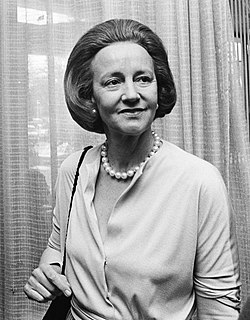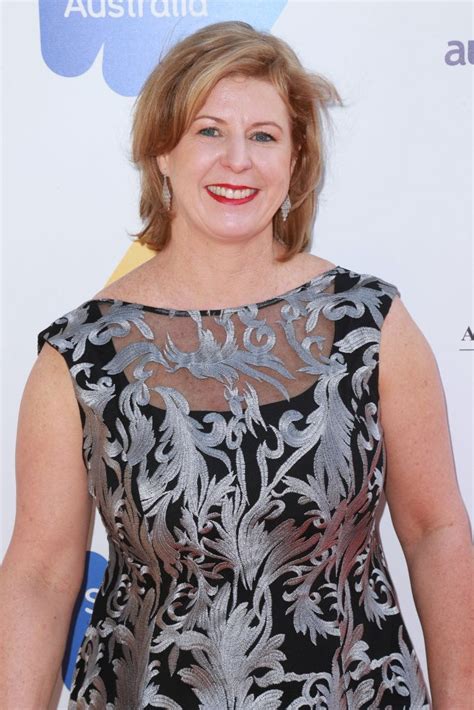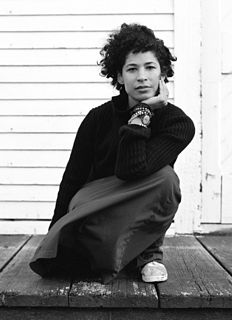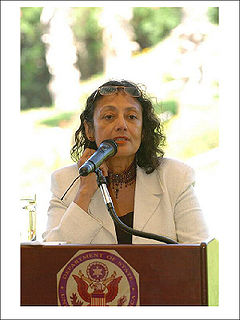A Quote by Katharine Graham
My mother seemed to undermine so much of what I did, subtly belittling my choices and my activities in light of her greater, more important ones.
Related Quotes
Elizabeth’s hands flew to her mouth; tears filled her eyes with happiness as she realized he was fulfilling yet another of her and her mother’s intended activities. “Why are you fulfilling all of my mother’s dreams?” she asked, studying his face and searching for answers. “So you don’t run away like she did in search of them,” he replied, taking her hand. “Come on, join in!” he said, leaping around.
My mother has made choices in her life, as we all must, and she is at peace with them. I can see her peace. She did not cop out on herself. The benefits of her choices are massive-a long, stable marriage to a man she still calls her best friend; a family that has extended now into grandchildren who adore her; a certainty in her own strength. Maybe some things were sacrificed, and my dad made his sacrifices, too-but who amongst us lives without sacrifice?
One thing I did have under my belt was, my mother lost her mother when she was 11. She mourned her mother her whole life and made my grandmother seem present even though I never met her. I couldn't imagine how my mom could go on but she did, she took care of us, she worked two jobs and had four children. She was such a good example of how to conduct oneself in a time of grief. When I lost my husband, I tried to model myself as much as I could on her.
Mother Teresas detractors have accused her of overemphasizing Calcuttans destitution and of coercing conversion from the defenseless. In the context of lost causes, Mother Teresa took on battles she knew she could win. Taken together, it seems to me, the criticisms of her work do not undermine or topple her overall achievement.
The greater is the circle of light, the greater is the boundary of the darkness by which it is confined. But, notwithstanding this, the more light get, the more thankful we ought to be, for by this means we have the greater range for satisfactory contemplation. time the bounds of light will be still farther extended; and from the infinity of the divine nature, and the divine works, we may promise ourselves an endless progress in our investigation them: a prospect truly sublime and glorious.
Mother Teresa's detractors have accused her of overemphasizing Calcuttans' destitution and of coercing conversion from the defenseless. In the context of lost causes, Mother Teresa took on battles she knew she could win. Taken together, it seems to me, the criticisms of her work do not undermine or topple her overall achievement.
of all the unusual features of Stargirl, this struck me as the most remarkable. Bad things did not stick to her. Correction: her bad things did not stick to her. If we were hurt, if we were unhappy or otherwise victimized by life, she seemed to know about it, and to care, as soon as we did. But bad things falling on her -- unkind words, nasty stares, foot blisters -- she seemed unaware of. I never saw her look in a mirror, never heard her complain. All of her feelings, all of her attentions flowed outward. She had no ego.
"She (Minnie Ruth Solomon) was unusual because even though I knew her family was as poor as ours, nothing she said or did seemed touched by that. Or by prejudice. Or by anything the world said or did. It was as if she had something inside her that somehow made all that not count. I fell in love with her some the first time we ever talked, and a little bit more every time after that until I thought I couldn't love her more than I did. And when I felt that way, I asked her to marry me . . . and she said she would."
Mother love has been much maligned. An over mothered boy may go through life expecting each new woman to love him the way his mother did. Her love may make any other love seem inadequate. But an unloved boy would be even more likely to idealize love. I don't think it's possible for a mother or father to love a child too much.


































